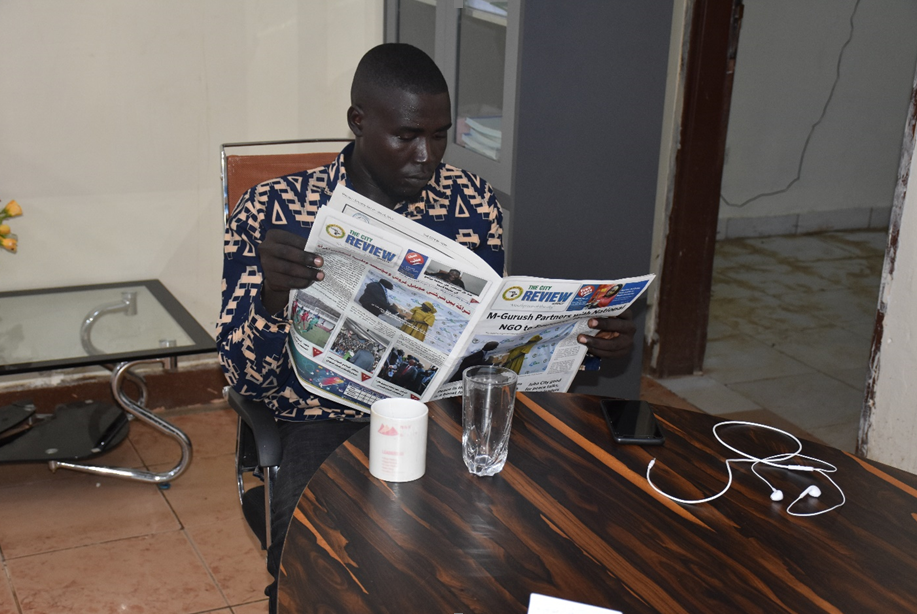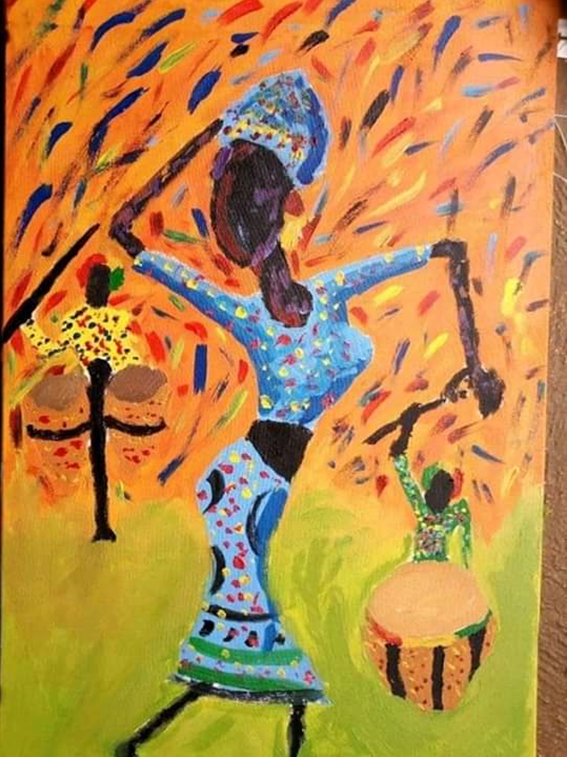[Juba, South Sudan, TCT, By Francis Mading Kuol] South Sudan is a country full of ambitious talents and creators in all fields able to raise the name of South Sudan high in international forums.
[Juba, South Sudan, TCT, By Francis Mading Kuol] South Sudan is a country full of ambitious talents and creators in all fields able to raise the name of South Sudan high in international forums.
Some of these young talents talks about his experience and the story of his creativity in some local newspapers and social networking sites. Abdullah Merghani, known as Cardinal, is a person with a variety of talents, including cartoon and painting, in addition to the talent of writing short stories,and satires. He focuses on the dissemination of the values of peace, community, unity and the fight against negative phenomena in society.
My name is Abdullah Mirghani Ali. I am a graduate of the University of Juba year 2009, Department of History, Faculty of Arts and Humanities.
TCT: Tell us about your beginnings in cartoons
I started drawing while at the university after completing exams. I was trying to fill the gap by drawing and after a while I saw that there was encouragement from colleagues who noticed that there is creativity in my drawings. That’s when I started publishing my drawings in the newspaper Al-Watan. I then opened a shop in the Malakal neighborhood under a tree, called "Ala Kifak" which in Arabic means “As you want”. I hang my drawings in my premises.
TCT: Every creative needs someone to support them. Who supports you?
Financial support does not exist, but moral support does. Many people encourage me to develop my talent. One of them is Akot Snoop, a painting artist from the University of Juba, who helped and encouraged me to improve my work, and I do not forget the young people who live with me in the neighborhood. Also my family, parents and relatives support me.
TCT: Have you participated in an exhibition or festival in the field of painting to share your work in those platforms?
So far I have not participated in any art platform, but I always publish my work on Facebook and in art groups.
TCT: We noticed that you also have made some attempts at painting. Tell us about the experience?
I started painting last year when I took part in a painting training workshop organized by the White Tecker Institute, which was held at Supirry secondary School. The workshop taught participants the methods of painting and drawing. I was only drawing cartoons, but I didn't know anything about painting. I was encouraged to learn that that cartoons are an integral part of painting. From that point on, my attempts at painting started a new experience for me.
TCT: Is your art appreciated in the country?
I focus on spreading messages that adopt on values of peace to fight harmful customs of society. Of course I face some negative feedback, where there is a misunderstanding of these drawings. My concept and the content is clear: Peace, love, justice, Reconciliation.
TCT: What is the role of drawing in peace-building and reconciliation?
Art in general is universal and has a role in society of changing misconceptions, and establishing values of peace and love in society. We use a simple method where even uneducated people can easily understand the content and messages through drawing all kinds, especially the cartoons to simplify the complex and difficult to understand the simple.
TCT: what benefits do you get as a cartoonist?
Fine Art and cartooning do not find much acceptance and encouragement among South Sudanese citizens. Few of the cartoonists are those who find the benefit of painting, especially veterans such as Tom Dai and Adiga who contribute their drawings to newspapers and some organizations and receive some money through their work. However we do not benefit materially through the practice of drawing unless you find someone who is interested in your business and pays you money to draw some work.
TCT: You also write short stories and poetry, tell us about that experience
Writing stories started late, at the university. My colleagues were talking about valuable books and that encouraged me to read books and then I liked the idea. It later led me to write some short stories. and I support them with pictures. I publish on my site and I have some writings published in the daily newspaper called al Maugif .
TCT: which are someprominent topics covered in your writing?
I always focus on the concept of justice in society, fighting harmful practices such as excessive drinking, the dangers of sex and other topics that occur in everyday life.
TCT: which challenges does art fight in South Sudan?
Lack of awareness and understanding of the positive roles of art, lack of material and moral support, and there is also a lack of exhibitions and art festivals.
TCT: Who is responsible for providing support to artists and creators?
The Ministry of Youth, Culture and Sports has an interest in talents and creators and we have many talents outside the country that need the support of the government.
TCT: for those talents who have abandoned their art and creativity because of the lack of support and encouragement, what are you saying to them?
They must not give up, they must not kill talent inside them, art is an expression of human inner feelings so they must not keep it secret, they must insist on achieving their ambitions.
TCT: Speaking of ambition, what are your future ambitions in the coming years?
I plan to organize an exhibition that includes all my artwork in cartoons like the exhibition that was organized in Paris and London some time ago. On the writing side, I have a plan to launch a book in the future titled "The Boda Boda Driver.” Most of the youth, including university graduates, work in bodaboda businesses.
The book will address the daily problems of citizens through this book. I will try to reverse the wrong pattern of the drivers of the bodaboda riders because they are not just simple people, but educated. They are forced by the circumstances of life and the problems of the state to practice the profession due to the lack of sufficient employment opportunities to absorb them in to government and private institutions. Fix this last sentence.
TCT: What are some of your most recent messages?
Negative issues and issues that do not benefit the state should not be pursued. Young people should have a positive role in society through their talents.











